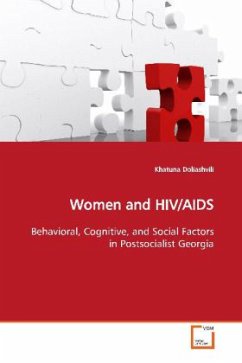
Women and Information Technology
An Economic Perspective
Versandkostenfrei!
Versandfertig in 6-10 Tagen
52,99 €
inkl. MwSt.

PAYBACK Punkte
26 °P sammeln!
As information technology (IT) has exploded over thepast decade, the need to cultivate and sustain awell-prepared and diverse labor force has becomeincreasingly evident. The increasing penetration ofIT into all sectors of economy makes it necessary toinclude all parts of society in IT professions. However, there is a serious problem in attractingwomen to IT fields. Currently, thepercentage of women working in IT is much smallerthan their percentage in the general population, oramong recipients of college degrees. This book examines key factors behind the underrepresentation of women in IT educ...
As information technology (IT) has exploded over the
past decade, the need to cultivate and sustain a
well-prepared and diverse labor force has become
increasingly evident. The increasing penetration of
IT into all sectors of economy makes it necessary to
include all parts of society in IT professions.
However, there is a serious problem in attracting
women to IT fields. Currently, the
percentage of women working in IT is much smaller
than their percentage in the general population, or
among recipients of college degrees.
This book examines key factors behind the
underrepresentation of women in IT education and IT
workforce from an economic perspective. It compares
the earnings of female and male IT professionals who
have similar degrees and experience. Using Florida
data, the study discussed in the book presents
little or no gender wage difference for IT graduates
from the Community Colleges and Post-Secondary
Education programs, while an increasing gender
wage difference for the four-year college IT
graduates. The book presents
compelling evidence for the wage gap in IT
workforce due to gender discrimination.
past decade, the need to cultivate and sustain a
well-prepared and diverse labor force has become
increasingly evident. The increasing penetration of
IT into all sectors of economy makes it necessary to
include all parts of society in IT professions.
However, there is a serious problem in attracting
women to IT fields. Currently, the
percentage of women working in IT is much smaller
than their percentage in the general population, or
among recipients of college degrees.
This book examines key factors behind the
underrepresentation of women in IT education and IT
workforce from an economic perspective. It compares
the earnings of female and male IT professionals who
have similar degrees and experience. Using Florida
data, the study discussed in the book presents
little or no gender wage difference for IT graduates
from the Community Colleges and Post-Secondary
Education programs, while an increasing gender
wage difference for the four-year college IT
graduates. The book presents
compelling evidence for the wage gap in IT
workforce due to gender discrimination.












